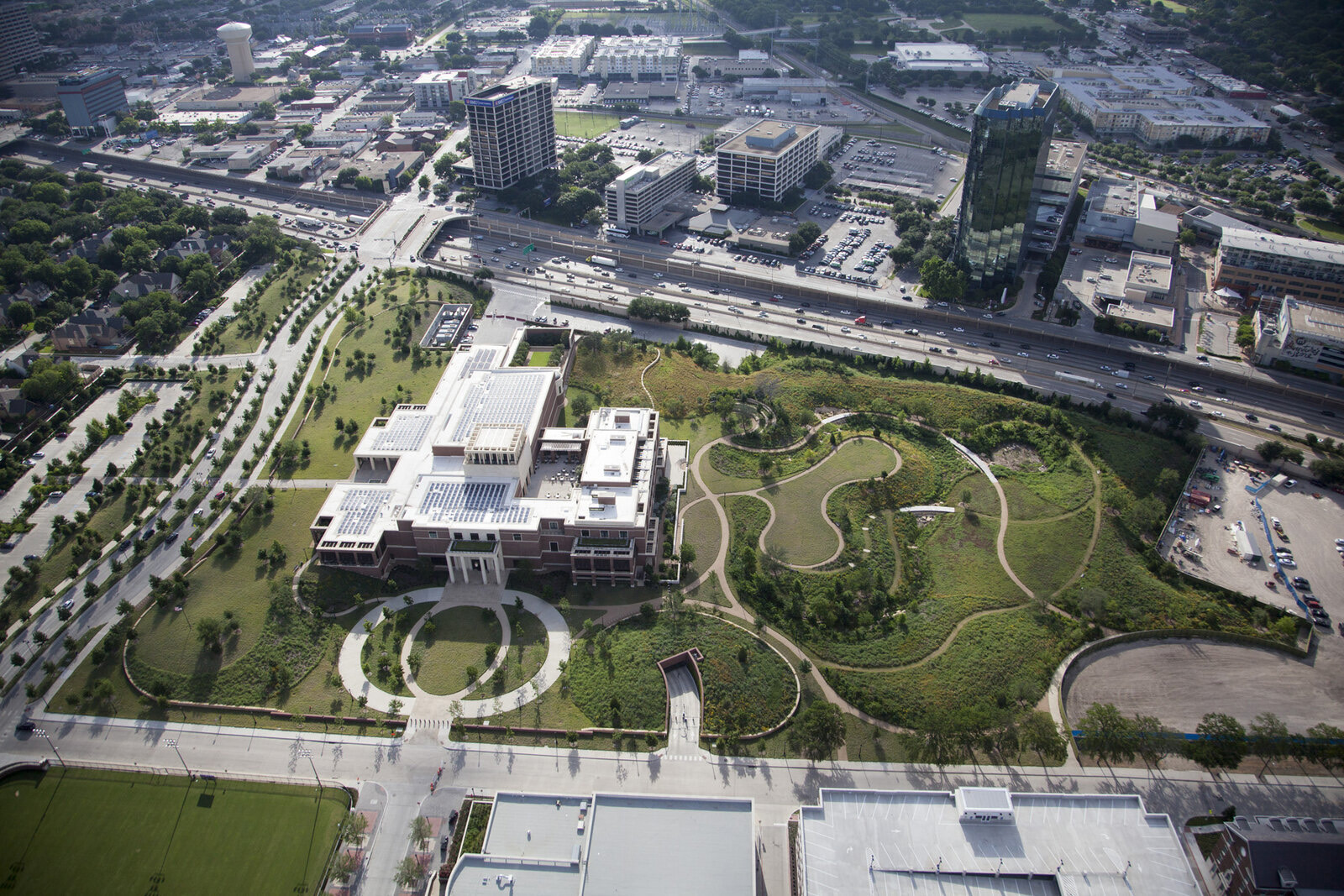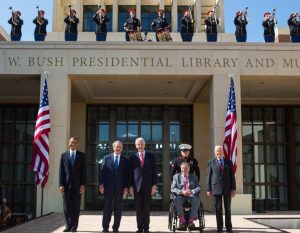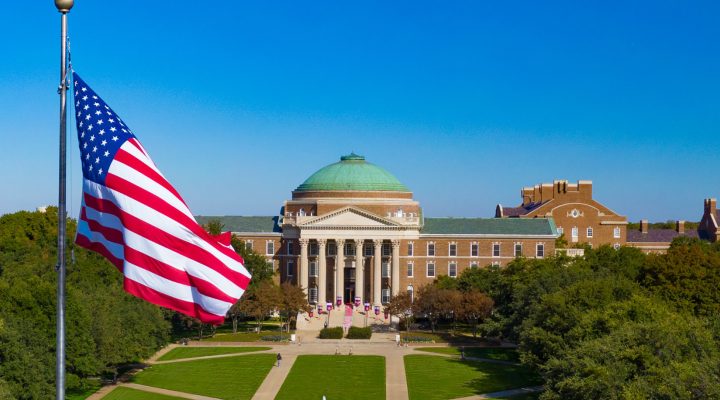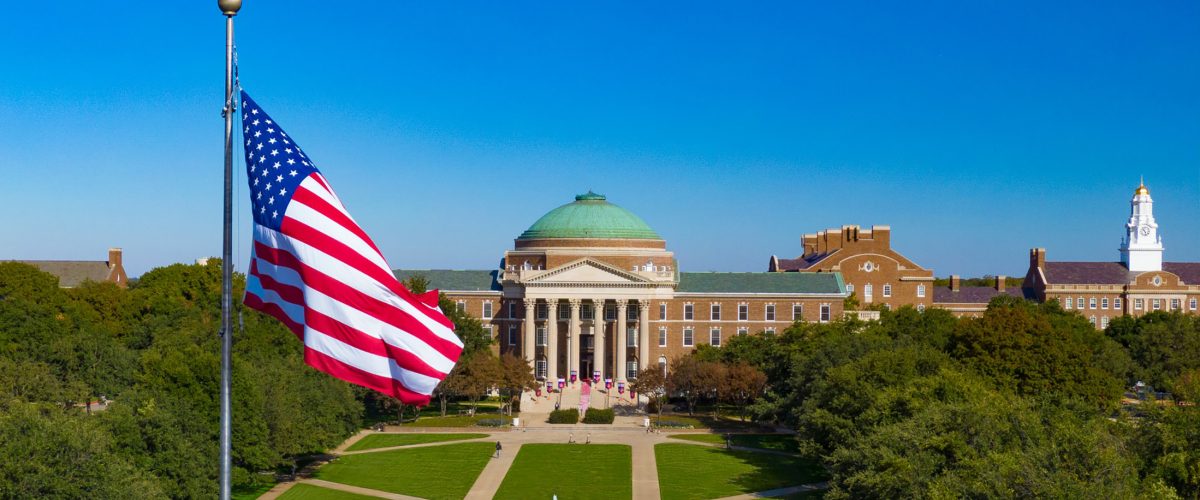Southern Methodist University in Dallas is headed back to court seeking to free itself from the authority of The United Methodist Church. Most sources trace this conflict back to actions taken by the UMC in 2019, but a tug-of-war between university and church goes back more than a decade further.
According to a report in the Oct. 18 Dallas Morning News, the Texas Supreme Court has agreed to hear oral arguments in January 2025 in a lawsuit between SMU and the UMC’s South Central Jurisdiction, an eight-state region that includes Texas. Whether SMU has the authority to revise its governing language without jurisdictional approval forms the crux of the matter, because legally South Central owns much of the SMU campus.
A framed poster-sized deed certificate hangs outside the bishop’s office at the United Methodist Center in Plano, Texas, attesting to the jurisdiction’s ownership of the university. Historically the resident United Methodist bishop in Dallas and other South Central bishops have served as SMU trustees.
Circumstances have changed since South Central brought the lawsuit in December 2019, but tense relations between the university and the church go back to 2003. That’s when SMU was negotiating a sweetheart deal to lease part of the campus as a site for the presidential library of George W. Bush. Even early on, SMU’s chances of landing the library looked good; not only was it a Texas location close to the Bushes’ retirement residence, but First Lady Laura Bush served as an SMU trustee.
Another contender for the library was Baylor University in Waco, Texas. The site Baylor set aside now houses McLane Stadium for football. Texas Tech University and the University of Dallas also were finalists for the site selection.

Aerial view of Bush Presidential Center on the campus of Southern Methodist University in Dallas. The highway in the backgrround is US-75 Central Expressway. The main SMU campus lies out of frame in the foreground. (Photo by Alex MacLean for Michael Van Valkenburgh Associates, Inc)
Amid this bidding war for the library, backlash swelled at SMU.
A United Methodist clergyman, the late Andrew Weaver, spearheaded a drive against the Bush library that eventually gained support from more than 20,000 SMU alumni and South Central leaders. The dissidents professed themselves morally appalled that a church-owned institution would offer to house Bush’s presidential history given his administration’s manipulation of the Iraq invasion. Opponents argued that legally SMU couldn’t enter such a lease without the approval of the jurisdiction, a regional church body of several hundred delegates that meets only once every four years.

At the dedication of the Bush Presidential Library and Museum, George W. Bush poses with former presidents Barack Obama, Bill Clinton, George H.W. Bush and Jimmy Carter. (Photo: Bush Library)
Despite this lag in legal authority, SMU pursued and won the Bush presidential complex, gaining official church sanction at the jurisdiction’s 2008 meeting in Dallas. That was, in a way, a concession that relationships had changed.
South Central moved even further away from its original authority over SMU in 2012 when it granted an administrative body known as the Mission Council the power to decide issues of property between full jurisdiction sessions. That paved the way for SMU to proceed with any property-related matters through an elite church body of fewer than 20 people.
Such temporarily cordial ties between SMU and South Central leaders began to unravel in February 2019 when a special-called session of the UMC’s General Conference, its top lawmaking body, enacted what was known as the “Traditional Plan.” The conference had been called to decide the church’s policy on inclusion of LGBTQ people.
At that time, LGBTQ Christians were barred from ordained ministry and from having their unions celebrated in United Methodist churches, among other restrictions. The policies were based on language in the UMC’s Social Principles, a set of guidelines for Christian living, which stated, “Homosexual practice is incompatible with Christian teaching.”
The “Traditional Plan” not only upheld the UMC’s official discrimination, it adopted — by a margin of 58 votes — draconian punishments for those who violated anti-LGBTQ church law.
The following November, SMU President R. Gerald Turner orchestrated a revision of the university’s bylaws to separate it completely from South Central’s oversight. The jurisdiction filed a lawsuit a month later, and the matter has been in and out of court ever since.
Turner told the Dallas Morning News in December 2019 the university was “preemptively” distancing itself from the UMC ahead of an expected split over its LGBTQ discrimination. Turner said then that the Texas secretary of state gave SMU permission to revise its bylaws, citing new policies allowing nonprofits to be administered fully by their boards of directors. The SMU president said at the time SMU wanted to “continue to educate everybody from all Methodist denominations and from other denominations and from people who don’t believe at all.”
Turner said he was especially concerned about Perkins School of Theology, one of the UMC’s 13 official seminaries, being able to educate future religious leaders of any denomination. Currently Perkins’ website claims 350 students, 40 faculty and 25 staff in Dallas and its Houston-Galveston extension program. Areas of academic concentration include Baptist studies and nondenominational African American church studies.
Since the lawsuit was launched in 2019, the United Methodist Church has lost 7,600 local congregations in the dispute over LGBTQ inclusion. A breakaway denomination, the Global Methodist Church, held its convening conference in September in Costa Rica.
As for the SMU-South Central lawsuit, a Texas district judge ruled in favor of SMU in 2021, dismissing the conference’s lawsuit with prejudice. The conference appealed, and Texas’ Fifth Court of Appeals reversed the dismissal in July 2023. Three appellate judges ruled that South Central Jurisdiction, as SMU’s “controlling parental entity,” retained standing to challenge the university’s bylaws change from 2019.
Meanwhile, the impetus for SMU’s bylaws change that sparked South Central Jurisdiction’s lawsuit has evaporated. The UMC’s General Conference voted overwhelmingly in May 2024 to eliminate all its anti-LGBTQ laws and policies.
Editor’s note: Cynthia Astle is a graduate of Perkins School of Theology’s spiritual direction program and was a communications consultant to the campaign opposing the George W. Bush Presidential Library in 2008.
Related articles:
What are the most ‘conservative’ colleges and universities in America?
Baylor caught in squabble over Bush library plans


